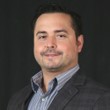Deliberative Dialogue Workshop
Join us to learn the basics of public deliberation, the importance of facilitated dialogue and deliberation, and the key skills necessary for good facilitation. You will also learn how to incorporate equity into your community work and will have an opportunity to experience a simulated dialogue as both a facilitator and participant.
The most pressing issues in communities (e.g., poverty, health disparities, and food insecurity) tend to be multifaceted and highly complex. They generally cannot be addressed with technical solutions or through top-down decision-making processes. They are what have come to be known as “wicked problems.” Wicked problems require a different type of problem-solving process that involves democratic practice, collaboration, and dialogue among multiple stakeholders, including those most affected by the issue.
In this workshop participants will learn the basics of public deliberation and how deliberative processes can be used to engage key stakeholders and partners to make progress on addressing wicked community problems. Public deliberation involves the best parts of dialogue (conversational) and debate (argument) to offer an experience where participants can learn from one another by talking through different perspectives and approaches to local and global issues and working together to come up with community action steps.
REGISTRATION:
Register online or call the Office of Public Affairs Support at 417-836-8832.
Date: Monday, July 15, 2019
Time: 9:00 AM - 3:00 PM
Cost: No charge; includes lunch
Location:
MSU Meyer Alumni Center
1st Floor Hospitality Room
300 S. Jefferson Ave.
Springfield, MO 65806
Parking: Attendees may use the parking garage attached to the east side of the Alumni Center.
Workshop Trainer: Dr. Mike Stout
 Mike is an associate professor and George Kaiser Family Foundation endowed chair for
Family and Community Policy in the Human Development and Family Science Department
at Oklahoma State University. His research and teaching are broadly focused on policies
and programs that 1) address barriers to upward mobility created by social and economic
inequalities, 2) promote civic engagement and 3) that provide equitable opportunities
for historically underrepresented and under resourced families and communities.
Mike is an associate professor and George Kaiser Family Foundation endowed chair for
Family and Community Policy in the Human Development and Family Science Department
at Oklahoma State University. His research and teaching are broadly focused on policies
and programs that 1) address barriers to upward mobility created by social and economic
inequalities, 2) promote civic engagement and 3) that provide equitable opportunities
for historically underrepresented and under resourced families and communities.
His current research is focused on early childhood disparities in academic achievement and on health disparities and the social determinants of health. Primarily community-based, he works with communities to understand and address issues in collaboration with local leaders and organizations from the public, private, nonprofit, educational, faith-based and philanthropic sectors. He has a doctorate in sociology from Pennsylvania State University.
Sponsors: This program is sponsored by MSU's Office of Public Affairs Support and the Center for Community Engagement